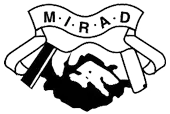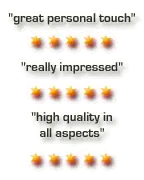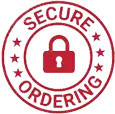Why Do The DVLA Ban Some Combinations Of Personalised Number Plates
Reg Plates ArticleWhy Do The DVLA Ban Some Combinations Of Personalised Number Plates

The DVLA (Driver and Vehicle Licensing Agency) in the UK has a system in place to regulate the issuance of personalised number plates. This ensures they are not offensive or cause cause distress to other road users. While a specific, publicly available list of all banned plates isn't released, we can explore the criteria used by the DVLA to withhold a plate and some examples that might be flagged.
Understanding Why Plates Get Banned
The DVLA prioritizes plates that could be considered:
Obscene: This includes anything that references profanity or lewd language. Even if the reference is veiled or uses abbreviations, it will likely be banned.
Offensive: This is a broader category that encompasses slurs targeting race, religion, gender, or sexual orientation. Plates that promote violence or hatred would also fall under this umbrella.
In Poor Taste: This includes references to bodily functions or anything that could be deemed generally rude or disrespectful.
Politically Charged: The DVLA steers clear of plates that promote specific political parties or movements. Similarly, references to sensitive political events or tensions are avoided.
Too Similar to Existing Plates: To avoid confusion on the road, the DVLA restricts plates that closely resemble legitimate government or emergency vehicle plates.
What Happens if you Apply for a Banned Plate?
If you try to register a personalised number plate that the DVLA deems inappropriate, your application will be rejected. You'll be offered the chance to choose a different combination. In some cases, a seemingly innocuous plate might be flagged for further review. This could happen if it has a slang meaning in a particular region or community that the DVLA might not be aware of.
The Challenge of Keeping Up
New slang terms and cultural references emerge all the time. This means the DVLA has to constantly be on the lookout for potential issues. They rely on a combination of automated checks and human review to maintain the integrity of the system.
Examples of Banned Plates (These are hypothetical examples)
BAD24: This is a clear reference to a swear word.
WKD420: This combines a reference to alcohol with a number associated with illegal drugs.
H8 FUL: This spells out "hateful."
lO VEU: While seemingly harmless, this could be seen as a political statement the DVLA avoids.
25 EXY: This is considered in poor taste by the DVLA.
Alternatives and Considerations
If you're looking for a personalized plate, it's always best to check with the DVLA beforehand to ensure your chosen combination isn't banned. Their website offers a search tool to help you with this process.
Here are some alternative approaches to consider:
Use initials or a memorable date: This is a classic approach for personalisation and is unlikely to cause any issues.
Choose a location-specific prefix: Many areas in the UK have a unique prefix assigned to their plates. This can add a touch of local pride to your vehicle.
Look for plates with interesting letter combinations: There are many combinations that create pronounceable words or names that aren't offensive but offer a bit of uniqueness.
Remember, the goal is to have a plate that reflects your personality in a way that is safe and respectful for everyone on the road.
Please note: This is not an exhaustive list, and the DVLA maintains the ultimate discretion in determining whether a plate is appropriate.
It all started back in 1991 when our love and obsession for private number plates was born.
Since then we have grown steadily over the years to become a leading light in the private number plate industry holding our own stock of high quality number plates and many thousands of registrations we are selling for trade and private clients including many celebrities and sports personalities.


- FREE TRANSFER SERVICE - your paperwork is handled by our trained team
- OVER 30 YEARS EXPERTISE - long established and trusted company
- DVLA RECOGNISED RESELLER - linked directly from the DVLA website
- TRADE ASSOCIATION MEMBERS - MIRAD and CN Guild members


